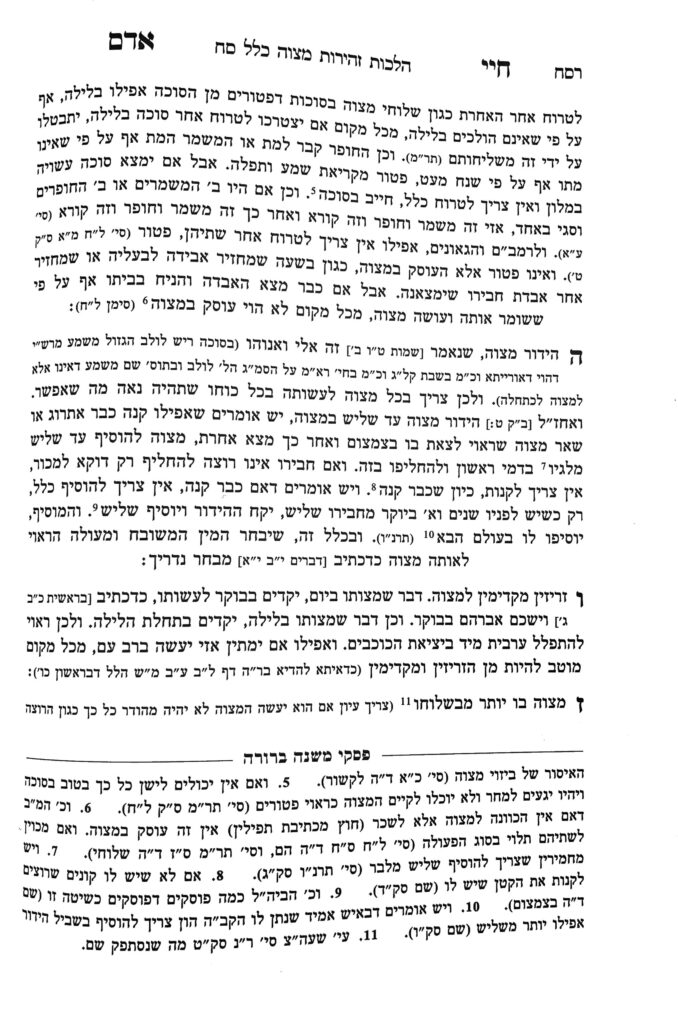We have finished siman 5, and have a few points to clarify. In siman 656, which discusses the halachos of hiddur mitzvah, the Mishnah Berurah brings up a discussion regarding whether the addition of one third applies to everyone, regardless of financial status, or maybe a wealthy person would be required to add more, and a poor person would be required to add less. In the Biur Halacha, he writes that a wealthy person is certainly not chayav to add more than one third (although he will be rewarded if he does, as we learned yesterday). The question is regarding a poor person.
The Biur Halacha writes that the Nimukei Yosef and Ramah (Rav Meir ben Todros HaLevi Abulafia, not to be confused with the Rema of Ashkenazi psak halacha), hold even a poor person must add a full third, but the Maharshal disagrees. The Biur Halacha brings a proof to support the position of the Nimukei Yosef and Ramah.
It is interesting to note that other than the Nimukei Yosef and Ramah, no other rishonim discuss this question. It is assumed that it is not otherwise discussed because other rishonim held a poor person would be not different than anyone else, and that this halacha would apply across the board.
Nevertheless, the Biur Halacha concludes that in a case where adding the third would be a difficult financial hardship, one is not required to add the third for hiddur mitzvah.
In the sefer Nasiach Bechukecha, the author points out that the Chofetz Chaim, in sefer Ahavas Chessed, writes that although one is not chayav to knock on doors begging for money for the purpose of hiddur mitzvah, one is chayav to squeeze and push themselves to accomplish hiddur mitzvah. The Chofetz Chaim gives us a window into understanding the concept of hiddur mitzvah. Hiddur mitzvah is a chiyuv deoraysa (see shiur 1396)–even if it is not meakeiv in fulfilling the mitzvah–and therefore a person is chayav to spend money on it, just as they are chayav to spend money on other mitzvos. Although there is a limit to the amount one should spend, we see the importance placed on the concept.
The sefer Nasiach Bechukecha next discusses the parameters of hiddur, and whether hiddur is limited to halachic hiddur or physical hiddur as well. He brings proofs that it applies to both. Therefore, something which has no halachic superiority but has an aesthetic superiority and is perceived by people as being more beautiful is considered hiddur. Halachic hiddurim are certainly considered a hiddur.
Summary
- If adding a third for hiddur mitzvah would be a difficult financial hardship, one is not required to add it. Nevertheless, it is a mitzvah deoraysa to fulfill hiddur mitzvah, so one should strive to fulfill it.
- Both halachic hiddur and aesthetic beauty are considered hiddur mitzvah.



